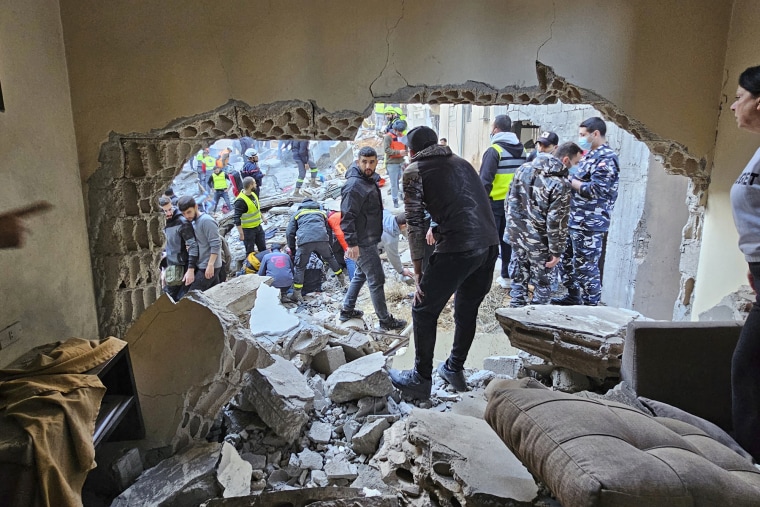President Joe Biden announced Tuesday, Nov. 26, that Israel and Hezbollah had agreed to a United States-brokered ceasefire in Lebanon.
In addition to widening the risk of a regional war, the escalated tensions and back-and-forth strikes over the last year have killed thousands of people and displaced more than a million.
Under the deal, which is set to go into effect Wednesday at 4 a.m. local time, the fighting at the Israel-Lebanese border will end, Biden said in outlining the ceasefire, which he said was “designed to be a permanent cessation of hostilities.”
Biden said the U.S., and partners including France, “will make sure this deal is implemented fully.”
“Let me be clear, if Hezbollah or anyone else breaks the deal, and poses a direct threat to Israel, then Israel retains the right to self-defense consistent with international law,” the president said from the White House.

He stressed that the agreement is in Lebanon’s best interest and supports its sovereignty, adding that its people, like the people of Gaza, deserve an end to the violence and displacement.
“The people of Gaza have been through hell. Their world is absolutely shattered,” Biden said, adding that Hamas’ only way out of the war with Israel is to release the hostages.
He said that the agreement between Israel and Hezbollah “reminds us that peace is possible.”
Shortly after the president’s announcement, Israeli Prime Minister Benjamin Netanyahu said in a statement that his Cabinet had approved the U.S.-brokered deal, 10 ministers to one.
“Israel appreciates the U.S. contribution to the process, and reserves its right to act against any threat to its security,” the statement read.
Earlier Tuesday, Netanyahu said he had recommended that his Cabinet agree to the deal with Hezbollah, which began trading fire with Israel a day after Hamas’ Oct. 7, 2023, terrorist attack.
Hezbollah says it is supporting the Palestinian resistance; Israel sees it as another attempt by Tehran to attack the Jewish state.
Netanyahu and other Israeli leaders have promised not to stop their attacks on Hezbollah until the 60,000 residents of northern Israel who have been driven from their homes can return safely. Around 90 Israeli soldiers and 50 Israeli civilians have been killed since Oct. 7, 2023.
More than 3,820 people have been killed in Lebanon by Israeli bombing since the fighting started, according to Lebanon’s health ministry, a campaign that has displaced some 1.2 million people and unleashed a humanitarian crisis.
In this multifront war in the Middle East, the Lebanon conflict has become a key focus for Israel in recent months. That’s partly down to Hezbollah’s mighty missile arsenal, bigger than any other non-state group in the world and thought to be capable of overwhelming Israel’s missile defense.